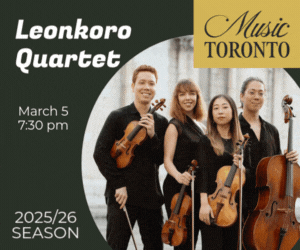EXTENDED PLAY: VERSATILE CANADIAN GUITARISTS SCORE
By Ken Waxman
Arguably more responsible than any other instrument over the past century for famous and infamous music, the electric guitar is a harsh taskmaster, especially for musicians creating innovative sounds. Luckily the six-string’s versatility can be adapted to a variety of sonic situations. Mixing original concepts with sympathetic musical partners make each of these discs notable.
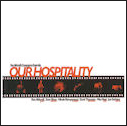 Toronto’s Ken Aldcroft takes an organic approach on Our Hospitality
Toronto’s Ken Aldcroft takes an organic approach on Our Hospitality
(Trio Records TRP-010 www.kenaldcroft.ca), situating his axe within his top-flight Convergence Ensemble filled out by trumpeter Nicole Rampersaud, trombonist Scott Thomson, alto saxophonist Evan Shaw, bassist Wes Neal and drummer Joe Sorbara. Long-time colleagues, this relationship means that Aldcroft’s eight compositions are extended with instant arrangements and sympathetic improvisations throughout. Just a Hint and Dialoguing illuminate this. On the former, Sorbara’s paradiddles set up each soloist’s understated parallel lines while discursive guitar plucks maintain spectral separation. Eventually Rampersaud’s fluttering grace notes provide connective sinew as she ascends the scale. A group improv, Dialoguing matches the trumpeter’s flutter-tonguing with moderato and legato trills from Shaw. All the while Thomson’s trombone is slurring and shuffling on its own tangent, as is Aldcroft’s circular, finger-styled pacing. When the plectrumist introduces below-the-bridge hammering plus metallic crunches, it’s Neal’s bass line that steadies the narrative from below.
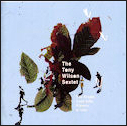 Transforming much different source material is Vancouver’s Tony Wilson’s The People Look Like Flowers (Last Drip Audio DA 00482 www.dripaudio.com), whose centrepiece is an improvisational re-imagining of Benjamin Britten’s Lachrymae. The 11-movement suite is made new not only by mutating and mixing melodies with improvisations and other musical tropes, but by interpreting the chamber work composed for viola and piano with Wilson’s guitar, Peggy Lee’s cello, Paul Blaney’s bass, Dylan van der Schyff’s drums, Dave Say’s saxophones and Kevin Elaschuk’s trumpet. Proving the theme’s adaptability, the sextet takes it straight in sections, adds to its lyricism elsewhere, distorts it abrasively in other spots and alludes to folk songs at points. The last is most apparent on Movement #4 Variation as Wilson’s linear development is given added impetus by Lee’s sul tasto sweeps as well as wavering trumpet lines. Movement #2 on the other hand includes sul ponticello scratches from the strings, plus the drummer’s martial flams and rim shots that only occasionally let portions of the melody peek through. Elaschuk’s contrapuntal trumpet lines and Wilson’s slurred fingering help turn Movement #11 into a sectional swinger with the others riffing until the guitarist’s distorted licks give way to theme recapitulation.
Transforming much different source material is Vancouver’s Tony Wilson’s The People Look Like Flowers (Last Drip Audio DA 00482 www.dripaudio.com), whose centrepiece is an improvisational re-imagining of Benjamin Britten’s Lachrymae. The 11-movement suite is made new not only by mutating and mixing melodies with improvisations and other musical tropes, but by interpreting the chamber work composed for viola and piano with Wilson’s guitar, Peggy Lee’s cello, Paul Blaney’s bass, Dylan van der Schyff’s drums, Dave Say’s saxophones and Kevin Elaschuk’s trumpet. Proving the theme’s adaptability, the sextet takes it straight in sections, adds to its lyricism elsewhere, distorts it abrasively in other spots and alludes to folk songs at points. The last is most apparent on Movement #4 Variation as Wilson’s linear development is given added impetus by Lee’s sul tasto sweeps as well as wavering trumpet lines. Movement #2 on the other hand includes sul ponticello scratches from the strings, plus the drummer’s martial flams and rim shots that only occasionally let portions of the melody peek through. Elaschuk’s contrapuntal trumpet lines and Wilson’s slurred fingering help turn Movement #11 into a sectional swinger with the others riffing until the guitarist’s distorted licks give way to theme recapitulation.
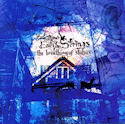 Another Vancouver guitarist, Gordon Grdina follows a similar route on The Breathing of Statues (Songlines SGL-SA 1572-2 www.songlines.com). Except all the compositions are his, and the East Van Strings which accompanies are violinist Jesse Zubot, violist Eyvind Kang and again cellist Peggy Lee. Combining Grdina’s fascination with Middle Eastern music – he also plays oud here – the second Viennese school and improvisation, the CD ensures that disparate influences converge without conflict. A detour into double-timed Arabic progressions is most apparent on the title track, when following a strummed drone from the oud, the other strings’ initial gypsy-like romantic colouration takes on the tonal characteristics of kamanchas or three-string spiked fiddles. This allegro stridency ceases though, when Lee’s adagio slides move the piece towards western lyricism. More attuned to atonality are Silence of Paintings and Origin. On the latter, after lively string curves illuminate the theme, Grdina counters with spidery runs and antiphonal slurred fingering. Pitch-sliding and flying spiccato from Kang lead the narrative towards stop-time until guitar strokes and romantic harmonies level the tempo. On the former, heavily rhythmic, vibrating cadenzas from Grdina sharply drive the theme chromatically as the strings’ layered pulsations scrape and scatter.
Another Vancouver guitarist, Gordon Grdina follows a similar route on The Breathing of Statues (Songlines SGL-SA 1572-2 www.songlines.com). Except all the compositions are his, and the East Van Strings which accompanies are violinist Jesse Zubot, violist Eyvind Kang and again cellist Peggy Lee. Combining Grdina’s fascination with Middle Eastern music – he also plays oud here – the second Viennese school and improvisation, the CD ensures that disparate influences converge without conflict. A detour into double-timed Arabic progressions is most apparent on the title track, when following a strummed drone from the oud, the other strings’ initial gypsy-like romantic colouration takes on the tonal characteristics of kamanchas or three-string spiked fiddles. This allegro stridency ceases though, when Lee’s adagio slides move the piece towards western lyricism. More attuned to atonality are Silence of Paintings and Origin. On the latter, after lively string curves illuminate the theme, Grdina counters with spidery runs and antiphonal slurred fingering. Pitch-sliding and flying spiccato from Kang lead the narrative towards stop-time until guitar strokes and romantic harmonies level the tempo. On the former, heavily rhythmic, vibrating cadenzas from Grdina sharply drive the theme chromatically as the strings’ layered pulsations scrape and scatter.
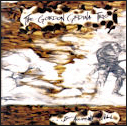 Tauter three-part dialogue characterizes Gordon Grdina’s other session while confirming both the guitar’s versatility and his own. If Accident Will (Plunge Records PR00628 www.plungrecords.com), with his combo filled out by bassist Tommy Babin and drummer Kenton Loewen, furrows the classic fusion power trio groove. However the originality and finesse exhibited on his other CD also appear here, albeit in a brawnier fashion. Tracks such as Yellow Spot into the Sun illustrate this, as the drummer’s measured march time is decorated with drags and flams as well as thick double bass thumps. Thanks to Grdina’s chromatic sound sprays the disguised ballad still retains its form despite Loewen’s hard pummelling. Arabic influences and the oud aren’t neglected either. Cobble Hill/Renunciation brings out a double-strung ecstatic pitch from Grdina, elastic chording from Babin and beats that could arise from a dumbek or North African goblet-shaped drum.
Tauter three-part dialogue characterizes Gordon Grdina’s other session while confirming both the guitar’s versatility and his own. If Accident Will (Plunge Records PR00628 www.plungrecords.com), with his combo filled out by bassist Tommy Babin and drummer Kenton Loewen, furrows the classic fusion power trio groove. However the originality and finesse exhibited on his other CD also appear here, albeit in a brawnier fashion. Tracks such as Yellow Spot into the Sun illustrate this, as the drummer’s measured march time is decorated with drags and flams as well as thick double bass thumps. Thanks to Grdina’s chromatic sound sprays the disguised ballad still retains its form despite Loewen’s hard pummelling. Arabic influences and the oud aren’t neglected either. Cobble Hill/Renunciation brings out a double-strung ecstatic pitch from Grdina, elastic chording from Babin and beats that could arise from a dumbek or North African goblet-shaped drum.



